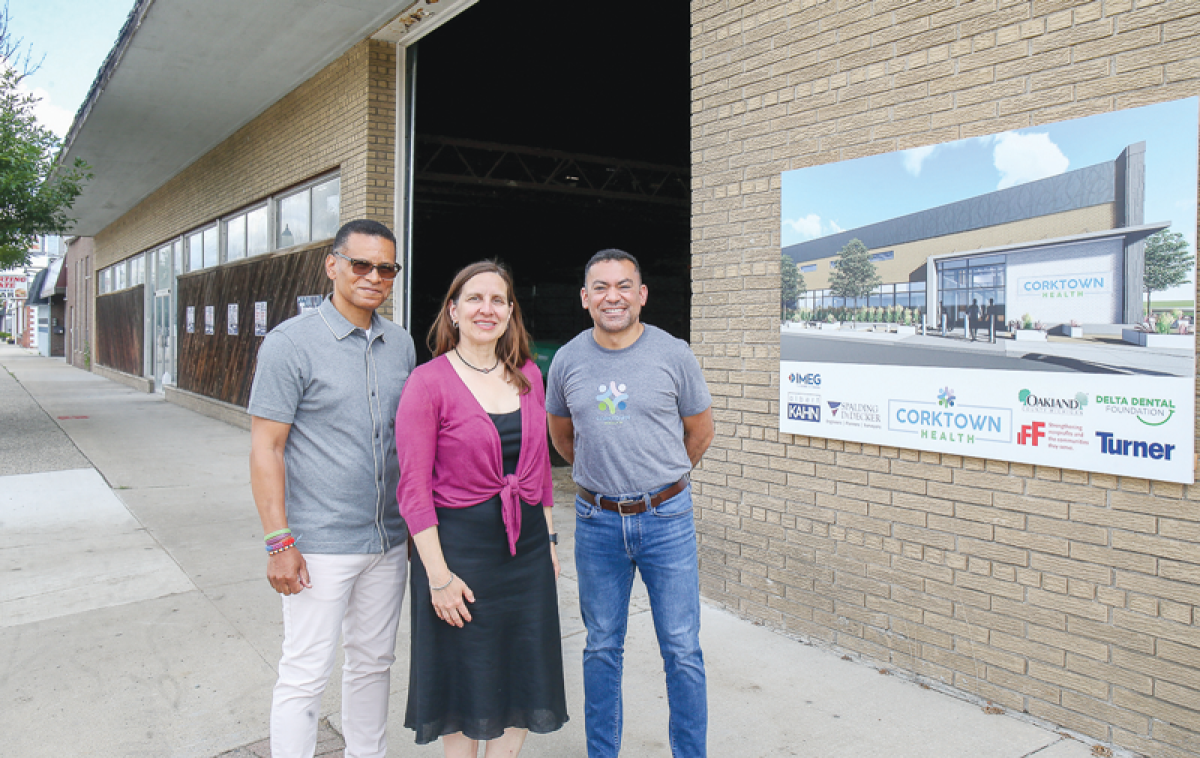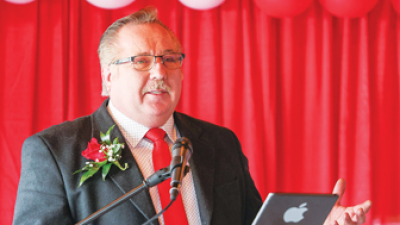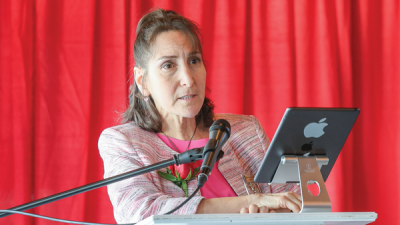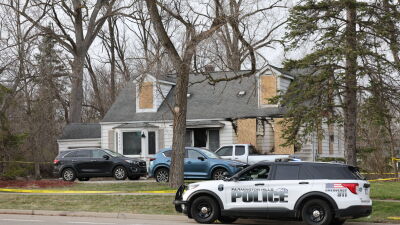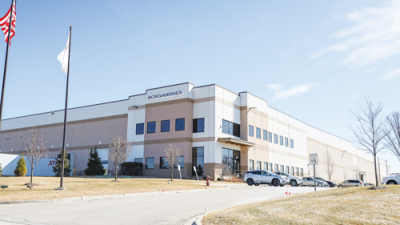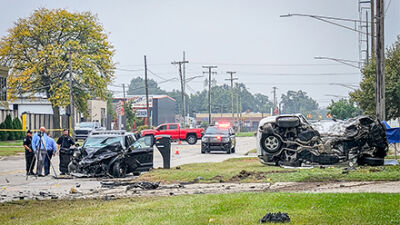HAZEL PARK — The nonprofit Corktown Health recently broke ground in Hazel Park for its second location, set to open in the first quarter of 2025. The medical clinic will be open to all people, and specializes in services for the LGBTQ+ community, which has been historically underserved.
Corktown Health @Hazel Park is located at 24310 John R Road, between Woodward Heights Boulevard and Interstate 696. The site was once a lumberyard and later Cellarmen’s, which made ciders and meads. The groundbreaking was June 14, and construction is now underway.
The property there has been mostly vacant since 2019 and will undergo a full-scale renovation as part of its transformation into the new clinic. The building will be a state-of-the-art facility that spans about 19,000 square feet, designed by Albert Kahn Associates.
The clinic in Hazel Park is the second Corktown Health location to date — the other being Corktown Health @Detroit, at 1726 Howard Street in Detroit — and shares the goal of providing quality medical care for all, including LGBTQ persons and their families, regardless of ability to pay.
“In terms of health care disparities, data has shown that the most marginalized groups are also the ones that have experienced the highest level of disparity with regards to health care services — LGBTQ+ persons of color being the most marginalized of all. So, if we can close the (coverage) gaps within those communities, we know we can serve everyone,” said Mike Flores, chief financial officer at Corktown Health. “Even though we’re focused on LGBTQ+, we serve everyone, and everyone gets served as they present themselves. Regardless of how you identify, you are welcome here.
“And our data proves this,” he said. “At our Detroit location, 60% of our patients identify as LGBTQ+ and 40% do not; and 60% are on Medicaid and Medicare or any of those managed plans, while 40% are not. So what our data shows is that if we can provide the highest level of care in the most affirming environment, then we’re able to serve everyone, and our patients do feel that way.”
He said a wide range of services will be offered at the new site, including primary medical care, dental care, geriatric care, STI testing and treatment, behavioral health services, gender-affirming care, tobacco cessation, cancer screenings, telehealth services and health insurance navigation.
For persons living with HIV, the clinic will also offer HIV medical care, HIV prevention services, early intervention services and medical case management, emergency financial assistance and housing services, and food and nutrition services including nutritional counseling and food vouchers.
The food and nutrition services will also be available for those with other conditions such as diabetes, prediabetes, hypertension, cardiovascular disease, kidney disease and obesity.
The clinic aims to be thorough in understanding each person and their situation. Each patient is guaranteed 45 minutes for their first consultation; follow-ups are allotted at least 15 minutes but often extend to 30 minutes.
“This allows enough time for the provider to ask important questions, and lets the conversation evolve organically from the patient’s perspective,” Flores said. “Not being rushed allows the patient to be more honest and true about their experiences, and more comfortable sharing what they may need or want going forward.
“Let’s say there’s a patient that presents as female, and she has experienced trauma related to sexual assault,” he said. “If we’re able to identify that immediately, we may know that the best person to provide care is a female provider versus a male provider. And as we learn more about the patient, we may decide that the only people who should interact with that patient are people who also present as a female.”
The first location, in Detroit, opened in 2017, billing itself as Michigan’s first medical center to focus on the LGBTQ+ community. It currently serves more than 4,000 people, of which roughly 30% are people living with HIV. The Detroit location even remained open during the COVID-19 pandemic by quickly implementing telehealth and other forms of remote service delivery.
“We often use the example of the patient who works in the service industry and really doesn’t have the flexibility to take a 30-minute drive to the city, wait in our lobby, seek our services they need and then go back to work to start their shift in a timely manner. With our tele-services, they can be available during their lunch break and receive our services without leaving their location. This can be especially helpful for follow-ups, and we see people taking advantage of that,” Flores said.
“We also have patients as far north as Battle Creek and Grand Rapids who seek our services because of our affirming care, and the telehealth services allows them to stay in touch even though they’re in a different part of the state,” he said. “It also allows us to bridge a comfort level, since some of our patients might not feel comfortable coming in at first.”
Corktown Health itself is a nonprofit that started in 1986 under the name Health Emergency Lifeline Programs (HELP), specializing in HIV care. In 2021, HELP and the Detroit clinic consolidated into the current Corktown Health organization.
To help fund its operations supporting the LGBTQ+ community, Corktown Health launched a campaign last summer called “Driving Health Equity,” which has a goal of $8 million. As of last month, the campaign had brought in $6.2 million. Donations can be made at corktownhealth.org/donate.
Other funding sources include a mix of federal, state and local grants, along with donations from foundations and individuals, and reimbursable services.
Rep. Mike McFall, D-Hazel Park, who currently serves District 8 in the Michigan House of Representatives and is running for the newly formed District 14, said that he was proud to help make the new clinic a reality by securing state funds for it.
“They also got funding from the federal government and the county,” McFall said. “I think it will be a nice catalyst for our John R corridor. The marijuana businesses have done quite a bit already, but I think we’re moving beyond marijuana, seeking out other businesses. I also think this clinic will be great since its design looks like a community center and it will function like one, open to all to use. And the design will feature a lot of glass, opening up the front so that it will feel light and airy.”
McFall said Corktown Health has already made positive impacts on the area.
“They have hosted two dental clinics here, where they partner with the University of Detroit dental school, and if you have insurance, they like to bill your insurance, but if you don’t, you still get the services. Even though they’re primarily serving LGBTQ, they will work with anyone, so if anyone here or in the area needs services, they won’t be turned away,” he said. “Corktown Health has really been a good partner for the city.”
 Publication select ▼
Publication select ▼